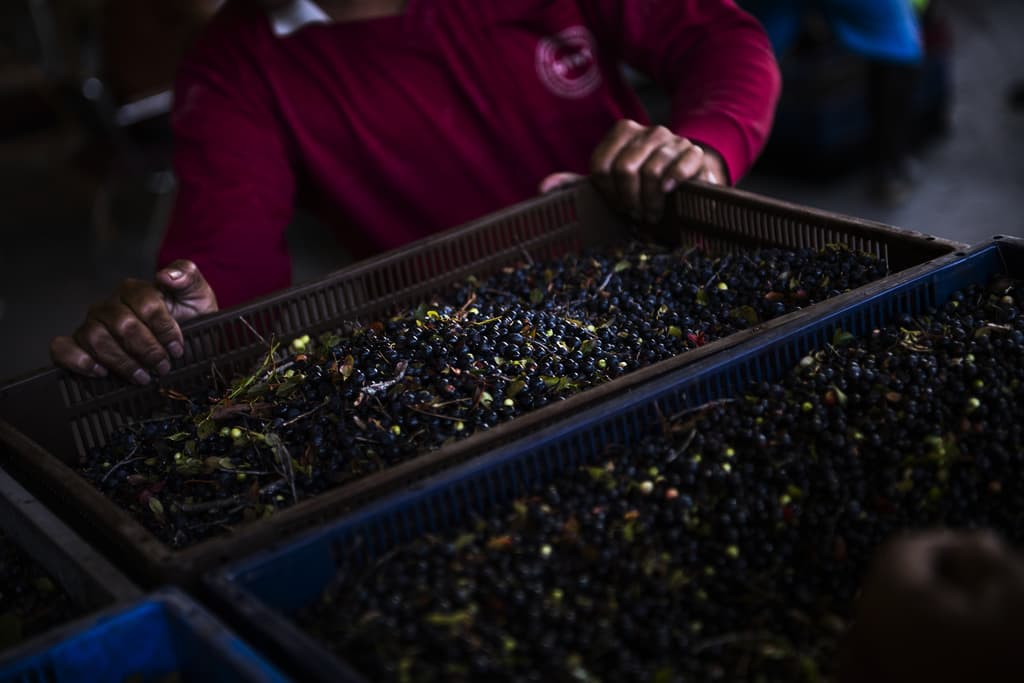Over 1,200 Thais have been granted residence and work permits for this year's berry season. This is a fraction of the 5,000-6,000 berry pickers who usually come to Sweden every summer.
Even the Thai staffing companies that work with the berry industry have decreased in number. Last year, 14 foreign staffing companies were granted permits, but this year only six companies have been given the green light to bring in Thai labor.
Several irregularities
Irregularities in the industry mean that we have to ask more questions. The regulations themselves have not changed, but it is still the same conditions that must be met, says Hanna Geurtsen, section chief in region North at the Migration Agency.
The agency has pointed out several irregularities, primarily that berry pickers work very long hours and do not receive compensation for overtime.
The Migration Agency chose to reject all applications for residence and work permits for this year's season when the employment conditions regarding salary and working hours were not deemed satisfactory. But the Migration Court changed the decision – and in the end, 1,200 permits were granted among roughly twice as many applicants.
Geurtsen believes that the reason why so few applications have been submitted is partly because the Migration Agency has been clear about strengthening controls on staffing companies. Processing times are also significantly longer than before.
Higher prices
Johan Borg, CEO of the berry company Ransäters Invest, is one of those who have been granted permits for berry pickers. He believes that it will cost more when fewer berry pickers come to Sweden.
The consequences will be higher prices on berries when the supply becomes smaller, he says.
The company has berry pickers in Värmland, Dalarna, Västernorrland, and Västerbotten. Borg also believes that the shortage of berry pickers means that more berries are left unpicked.
If you look at a year when there are many berry pickers in the forest, it's still a lot of berries that are left unpicked. Our berry pickers are here for about two months and can't pick as much as they want.
Last year, the conditions of berry pickers were highlighted at the political level. Now, a proposal is out for consultation, which means that the minimum wage may be raised further and that certain occupations, including berry picking, may be excluded from the possibility of being granted work permits.
There may be law changes that completely close the door for Thai berry pickers. The law is not yet finalized, but it is a clear political signal that they want to get rid of the irregularities that exist in the industry, says Geurtsen.
Thai citizens who come to Sweden to pick berries apply for residence and work permits through agents, often a foreign staffing company. If the proposed law that is now out for consultation goes through, it will no longer be possible to apply for residence and work permits for berry picking through a foreign agent.
Seasonal employment is direct employment with a company established in Sweden. These employments are regulated by the seasonal employment directive. A seasonal worker is a person who mainly lives in a country outside the EU/EEA and Switzerland and who temporarily resides in Sweden to perform work in a seasonal business in accordance with an agreement on temporary work.
This is how many work permits for wild berry pickers were granted from 2015 to 2023:
2023: 1,200
2022: 6,594
2021: 5,175
2020: 3,092
2019: 6,199
2018: 4,990
2017: 3,079
2016: 3,331
2015: 4,097
Source: Migration Agency






